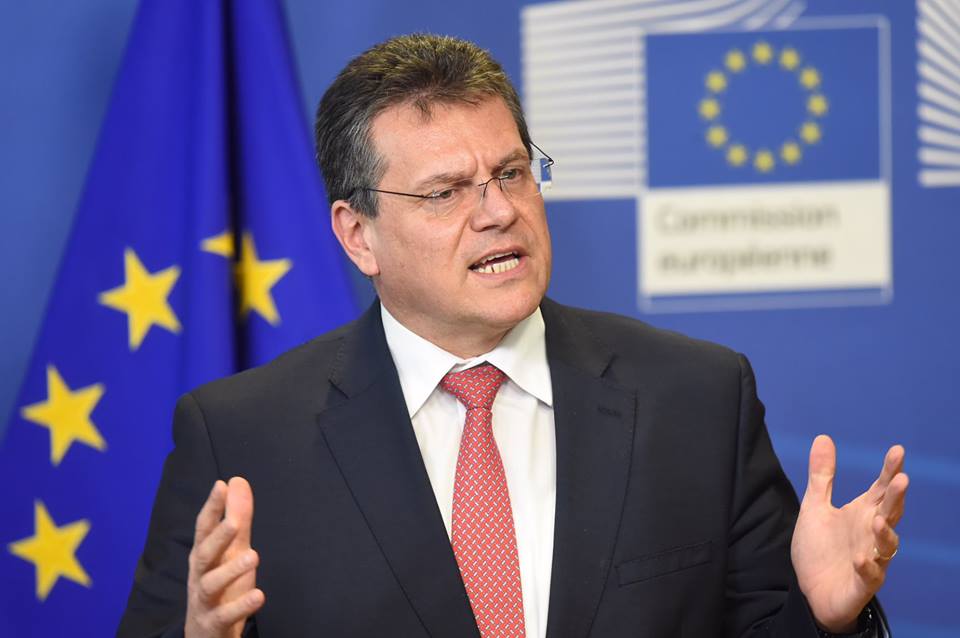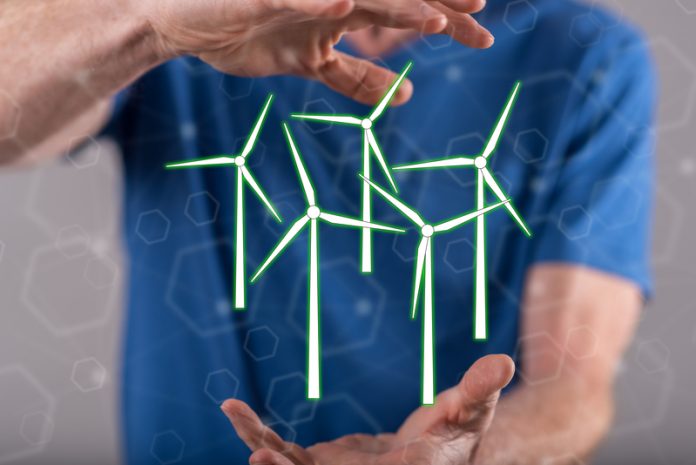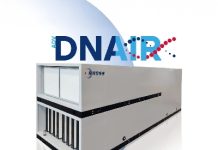Maroš Šefčovič, Vice-President, Energy Union at European Commission speaks to Open Access Government about establishing a European Energy Union and the importance of all Europeans having access to secure, affordable and climate-friendly energy
Establishing a European Energy Union happens by connecting infrastructures, enforcing legislation and increasing competition to help drive down costs for citizens and businesses and boost growth, Maroš Šefčovič, Vice-President of Energy Union underlines. In this interview with Open Access Government, he reveals that this is one of the top priorities of the European Commission today and he believes that this important mission has been accomplished.
As the interview begins, Maroš explains that all the legislative proposals to be included in the Energy Union were put on the table. Important aims here concerns energy security, which means hardware in terms of connection and how we can help each other to prevent any interruptions in the supply of energy. He also tells us that software is required in this respect, to deal with European energy markets and modernise the way in which energy is both produced and consumed. For that, well-interconnected networks are needed, and these can be combined with the European Commission’s ambitious climate agenda, he adds.

Maroš then stresses that the European Commission has found a unique way to include climate risk into the modernisation of industry, which consists of 9 million European workers, so while the legislation is now approved, the finishing touches have yet to be applied. In terms of clean mobility, the legislation includes new emission standards for cars and trucks which will increase a country’s Gross Domestic Product (GDP) over the next year. Concerning this important energy legislation Maroš underlines that the European Commission has had very strong support from the public for it.
The conversation then turns to Maroš’s thoughts on all Europeans having access to secure, affordable and climate-friendly energy. Firstly, it is vital that Europeans have clean and affordable energy to benefit their daily lives in terms of their wellbeing, Maroš tell us before offering his own thoughts on this.
“It is also important from the point of view of health because every year we are receiving more information about the impact of air pollution of our citizens. With higher levels of pollution in our cities, we now have more evidence that air pollution has negative consequences, such as on the mental state of our people.
“Also, the price of energy is very important for the competitiveness of our industry, so energy needs to be both affordable and clean.
“I am also encouraged by the proactive approach of our citizens, in terms of them turning into active consumers of energy so they are becoming readier to generate energy on their own. If you talk to those in the construction industry today, they will tell you that they have hardly built any houses or high rise buildings without a smart system in the building.”
Looking at the EU’s 2030 energy and climate targets, a part of this is a proposed reduction of 40% of greenhouse gas emissions, a minimum of 32% renewables in the EU energy mix and a 32.5% goal of energy efficiency savings. Maroš reveals that this was presented as the European Commission’s commitment to the people of Europe but also to the global community in terms of the Paris Agreement in 2015 where it was agreed that by 2030 greenhouse gas emissions must be reduced by at least 40%. It was also agreed there that at least 27% of renewables would be generated by that time and that the level of energy efficiency would be 27%.
“What happened, was that the industry, the politicians, the mayors and the consumers agreed that we can become more ambitious when it comes to such targets. In the discussion between the EU Member States and the European Parliament, we ended up with a higher target, so by 2030, we want to have at least 32% of renewables in the energy mix.
“We also want to achieve a level of energy efficiency in terms of saving 32.5%, so I am sure that these two targets set for the EU Member States will be translated into the reduction of greenhouse gas emissions. I think we will overshoot our emissions reductions target of 40%. This is very important because we wanted to show that for example, in terms of climate change we are the global leader and the first major economy which has transformed our commitment to law.
“This is also very important for industry and I am glad to say that this has had strong support from the public, including the mayors of our European cities who have become the closest allies we have. They are the first ones who deal with air pollution, traffic jams and access to clean water and are helping us a lot in achieving this target.”
In closing, we move to a challenge around energy policy and ask Vice-President Šefčovič about the trilateral ministerial talks with Russia and Ukraine, that concern the long-term transit of gas to Europe. He says that this is the most complicated issue he has on his desk, one reason for which is that Europeans have a fresh memory of gas interruptions in 2009. Here, most Central European Eastern countries were put into a situation where the whole of the industry was put on hold and the last remaining energy was channelled to hospitals and households.
“Of course, another factor is the complex question in Ukraine and Russia where a delicate discussion is needed. This is coming at a time when we all had to assess how much gas is needed in Europe. However, the good news is that in a recent discussion we had with Russian and Ukrainian ministers and company leaders, was that we will negotiate a way to ensure transit to Ukraine is secured on a basis of a commercially viable volume. That will help with their heating infrastructure, but also connect them with highly reputable energy operators externally to help them in managing the transmission of gas. I believe that this will make it easier for the European Commission, The World Bank and the European Bank for Reconstruction and Development (EBRD) who gave out a lot of money for the refurbishment of this gas pipeline and we aim to push these talks forward in the future.”
Maroš Šefčovič
Vice-President, Energy Union
European Commission
https://ec.europa.eu/commission/commissioners/2014-2019/sefcovic_en











